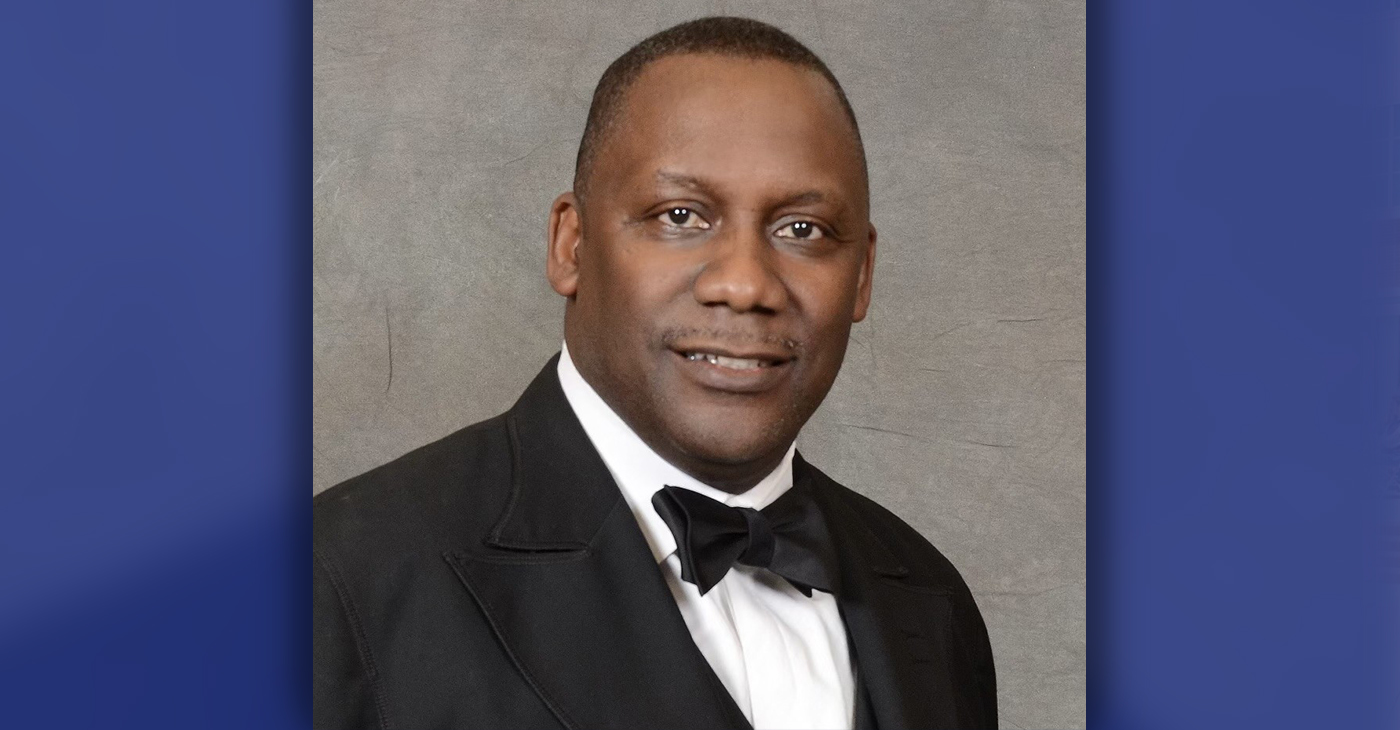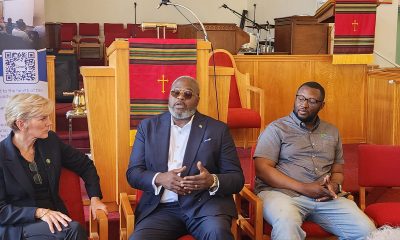Bay Area
Former Holy Names University Education Students Struggle to Complete Credentials, Call on HNU Trustees to Honor Commitment to Pay Teacher Training Scholarships
A group of former Holy Names University (HNU) education students are seeking support from local leaders and members of the public to push the HNU Board of Trustees to honor its commitment to use a still existing $55 million endowment to pay tuition for its education students who are now at other teacher training institutions after the university closed and abandoned them.

By Ken Epstein
A group of former Holy Names University (HNU) education students are seeking support from local leaders and members of the public to push the HNU Board of Trustees to honor its commitment to use a still existing $55 million endowment to pay tuition for its education students who are now at other teacher training institutions after the university closed and abandoned them.
HNU trustees still administer the affairs of the university, though they closed the school in Spring 2023 and sold the campus to private real estate developers. Many of HNU’s former education students currently teach in public, charter, and private school classrooms around the Bay Area while struggling to pay the high expenses of finishing their teaching credentials, often at the cost of over $1,300 a unit.
About 90 former HNU education students signed a letter to Attorney General Rob Bonta, asking the institution’s trustees to use the $55 million endowment for its intended purpose, which was left to the university as part of an estate to support training for new East Bay teachers.
The HNU Board responded in an email to the issues raised in this article, saying that they were operating within the court-ordered requirements, which leave them with no discretion.
Though $50 million of the endowment is still tied up in probate court, approximately $5 million has been disbursed to provide scholarships to help students who need financial support. Some students have received a little money, but while the HNU trustees had pledged in probate court to reach out to all former students about the availability of scholarships, that has not happened, and the scholarship amounts have been arbitrary and partial, according to students.
“We’ve been reaching out to let people know how to apply,” said members of the student group. “The Attorney General informed us that they (the HNU trustees) said they were going to contact everyone, but that never happened. No one from the School of Education, who this money was intended for, has heard from them.”
When students originally enrolled in HNU, the university had promised that the Logan endowment would pay 50% of their tuition. Yet the HNU Board, led by chair Steven Borg, now is distributing varying amounts, generally not over $3,000, which does not pay for a single three-unit class.
Some students are taking three units per semester, while others are taking 12 units and received the same amount of money. Those who have received scholarships, report that the money was not issued in a timely way. Many students are graduating this semester after having paid out of pocket, and no retroactive funds are being distributed.
Scholarships must be issued promptly because students cannot graduate if they have an outstanding overdue balance, and much of the money students received was “not based on anything solid, not based on units they were taking,” said another student.
In interviews with the Oakland Post, some former HNU students, all of whom take classes at the University of San Francisco while teaching in K-12 classrooms, discussed some obstacles they have faced since HNU closed.
Adrianna Castaing, who teaches first grade at a private school in the East Bay, said she attended HNU since 2017, completing her undergraduate degree and then entered the teacher training graduate program.
Though she received no money for fall semester, she said she did receive a small amount after “little to no communication from HNU,” but the amount was not in any way equal to the amount she had to pay for her coursework, which she expects to complete this semester,
Donna McClinto, who teaches elementary school in Oakland, said she was denied any money because HNU said she still owed HNU, though she had never heard that before, and because she was not enrolled in classes at HNU toward the end, when the school stopped offering classes that she needed. One of her classmates in the same situation did receive funding. There is no clear formula for distribution and students feel that the amounts are arbitrary.
Alice Thiuri, who teaches high school at a private school in Oakland, said she received $3,000 which did not cover her tuition. “I requested a little more, but they said no, though I gave them receipts for five classes I took.” They said the scholarship amount was not based on her expenses, but when she expected to graduate. She said she was told that the amount she received was determined by the Attorney General.
Kassandra Solano, an elementary teacher in Oakland who started at HNU in 2018, had completed all the classes for her masters’ degree except for one or two. “I reached out for counseling, advising, but heard nothing. They kept changing advisors. I never found out what other class I needed to take,” she said.
“I reached out for a scholarship but was told I didn’t qualify because I wasn’t registered for classes,” she said. “HNU changed advisors three times, and there was never an answer from any of those advisors,” she continued. “I was very upset.”
HNU failed to create a Memorandum of Understanding (MOU) with any school of education, so that students could transfer, though the trustees had promised to do so.
“Every student was left to fend for themselves,” said Dr. Nirali Jani, a former education professor at HNU who is currently teaching at the University of San Francisco.
Many of the students emphasized that the closing of HNU and failure to maintain the scholarships only exacerbates the teacher shortage that is hitting Oakland and other districts across the state and country.
In response to this article, Bernard D. Bollinger of HBU wrote:
“The terms for the distribution of Logan Fund Scholarships for transfer students are delineated in … (an) order of the Superior Court (a public record). Paragraph 1 … permits scholarships to be provided to ‘students who were enrolled at Holy Names University during the 2022-2023,’ (if) they continue to meet academic performance requirements of the Logan Fund gift instrument.
“It does not require that the scholarship recipients attend a school of education. Distributions from the Logan Scholarship are specifically limited to the provisions delineated in court orders and the terms of the gift agreement, so neither HNU (nor any other party) has discretion on how to award those funds.
“As a result, HNU did not focus on getting MOUs with ‘schools of education’ but with schools that HNU believed to be attracting large numbers of transferred students from HNU in order to assist as many students as possible.
“The list of 11 schools that HNU has entered into an MOU with (including USF) can be found on HNU’s website (at) https://hnu.edu/resources/formerhnustudents/#tinstitutions
“That section of the HNU website has a list of several resources for former students including under Financial FAQs. At the question ‘Is my HNU scholarship still available?’ students can provide information and get in contact with HNU representatives via that link that is provided there in addition to readily available information on the HNU website.
“Student outreach was significant, with multiple emails and paper letters to former students.”
The student group will hold an information session for former HNU education students on how to apply for scholarships and to complete their teacher training programs Saturday, April 27, 3 -5:30 p.m. at Wild Child Schoolhouse, 160 41st St. in Oakland.
A happy hour will follow at Cato’s Ale House, 3891 Piedmont Ave. in Oakland.
For more information, email reclaimlogan@gmail.com.
Activism
Oakland Post: Week of July 24 – 30, 2024
The printed Weekly Edition of the Oakland Post: Week of July 24 – 30, 2024

To enlarge your view of this issue, use the slider, magnifying glass icon or full page icon in the lower right corner of the browser window. ![]()
Activism
Oakland Post: Week of July 17 -23, 2024
The printed Weekly Edition of the Oakland Post: Week of July 17 -23, 2024

To enlarge your view of this issue, use the slider, magnifying glass icon or full page icon in the lower right corner of the browser window. ![]()
Bay Area
Op-Ed Senate Bill 966 Threatens Health Equity in East Bay
My East Bay community is struggling to get by. A proposed State Senate bill would set us back even further. Serving the East Bay community has been my life’s work and my greatest joy. After leaving the Bay Area to complete my seminary, I returned home to found The Community Church in Oakland. From the outset of my time as the church’s pastor, I have been guided by the belief that my service must extend beyond the pulpit, because the health and economic needs of my community are so great. Our church has organized free food banks, COVID-19 testing clinics, and a housing and re-entry program for those suffering from addiction.

By Rev. Dr. Lawrence E. VanHook
Special to the Post
My East Bay community is struggling to get by. A proposed State Senate bill would set us back even further.
Serving the East Bay community has been my life’s work and my greatest joy. After leaving the Bay Area to complete my seminary, I returned home to found The Community Church in Oakland.
From the outset of my time as the church’s pastor, I have been guided by the belief that my service must extend beyond the pulpit, because the health and economic needs of my community are so great. Our church has organized free food banks, COVID-19 testing clinics, and a housing and re-entry program for those suffering from addiction.
Through my service, I have seen the challenges that our community members are facing. Oakland, my hometown, has the third-highest rate of violent crime in the state. The local economy is strained. Oakland-based businesses are leaving our community because they’re struggling to get ahead.
Both East and West Oakland has disproportionately high rates of respiratory illness due to heavy air pollution. While our local efforts have brought some aid to those in need, we are also counting on our state elected officials to help us address the systemic health disparities afflicting the community.
Chief among the health concerns of community members is having reliable and affordable access to prescription drugs. Equitable access to medications gives us the peace of mind that we can keep ourselves and our families healthy and safe. Our community should not have to choose between paying rent or purchasing prescriptions.
Unfortunately, rather than taking action to combat soaring prescription drug prices, some California lawmakers are pushing legislation that could raise patient costs at the pharmacy counter.
The Legislature is currently considering SB 966, a bill backed by special interests that would undercut the few tools we have to keep prescription drug costs contained, letting big drug companies increase their prices, profiting on the backs of working families – some of whom already live paycheck to paycheck.
SB 966 would target the fundamental programs through which small businesses, unions, and government health programs are able to offer their employees and members quality and affordable healthcare. Millions of Californians rely on these plans to obtain essential medications at the lowest-possible cost.
The bill would make it illegal for employers and unions to incentivize the administrators of their prescription drug plans to negotiate for the lowest possible cost for prescriptions. Right now, small businesses and unions can choose to pay these administrators more for taking on big drug companies and securing discounts – a choice that will be outlawed under this bill.
As a result, employers will have no leverage to stop big drug companies from setting sky-high prices, disproportionately impacting working families.
As these health costs quickly add up, employers will have little choice but to pass the increases down to their employees. That means California patients will see higher healthcare costs and co-pays.
From my perspective, most concerning is that the bill would exacerbate the health disparities impacting my community and other underserved populations. If SB 966 becomes law, the most vulnerable may be forced to skip prescription doses, stop filling their prescriptions, and avoid essential care.
By rejecting this cash grab by big drug companies, our state elected officials can send a clear message that they stand with the community, patients, and working families.
We cannot afford SB 966.
Rev. Dr. VanHook is the founder and pastor of The Community Church in Oakland and the founder of The Charis House, a re-entry facility for men recovering from alcohol and drug abuse.
-

 Arts and Culture3 weeks ago
Arts and Culture3 weeks agoRooted in Tradition: The Intricate History of Black Hair Braiding
-

 Bay Area4 weeks ago
Bay Area4 weeks ago“I Will Not Be Bullied,” Says Oakland Mayor Sheng Thao
-

 Bay Area2 weeks ago
Bay Area2 weeks agoPG&E Increases Rates While Bay Area Households Are Struggling to Stay Afloat
-

 Business3 weeks ago
Business3 weeks agoGov Newsom: Raising Fast Food Minimum Wage to $20 Pays Off as Jobs Multiply in Industry
-

 Activism4 weeks ago
Activism4 weeks agoOpponents of Mayor Sheng Thao Are Calling on Her to Resign Following FBI Raid
-

 Bay Area2 weeks ago
Bay Area2 weeks agoJuneteenth Mass Shooting Suspect Charge with Multiple Counts of Felony Assault by Alameda County DA Pamela Price
-

 Community1 week ago
Community1 week agoHundreds Come to Jehovah’s Witnesses’ Assembly Hall for Three-Day Program of ‘Good News’ in Fremont
-

 Activism4 weeks ago
Activism4 weeks agoOakland Coliseum Sale to AASEG: A Model for Community Development and Inclusion




















































